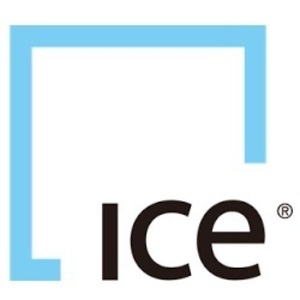ICE launches renewable volume obligation futures

March 29, 2022
BY Intercontinental Exchange Inc.
Intercontinental Exchange Inc. (ICE), a leading global provider of data, technology, and market infrastructure, on March 28 announced the launch of two renewable volume obligation (RVO) futures contracts, expanding ICE’s U.S. renewable fuels futures markets.
The U.S. EPA’s Renewable Fuel Standard mandates the incorporation of renewable fuels into transportation fuel. Each year, the EPA outlines the volume requirements for each renewable fuel category and sets those volumes through the annual renewable volume obligation (RVO).
Obligated parties under the RFS program include refiners and importers of transportation fuel in the U.S. Each year these companies calculate their renewable fuel obligation by multiplying the RVO percentage across the four renewable fuel categories under the RFS, by the volume of transportation fuel they produced or imported that compliance year.
Advertisement
The RVO applies to a basket of U.S. renewable identification numbers (RINs) which are credits generated by renewable fuel producers to track the compliance of transportation fuel under the RFS program. Companies must either generate RINs or purchase them to meet their annual commitments. The RVO is critical to the margin calculations of refiners, as well as importers and exporters of transportation fuels, and is an important consideration when exporting fuel and determining whether arbitrage opportunities exist, as well as influencing the crack spread for refiners using the fuel to create other products.
As a result, companies need a means to hedge their RVO exposure and ICE has today launched the RVO (OPIS) Current Year Future & Argus RVO Current Year Future, based on the OPIS and Argus daily price assessments. Each futures contract is equivalent to 50,000 gallons.
“Compliance with the Renewable Fuel Standard is a cost which refiners and importers of transportation fuel in the U.S. need to manage,” said Jeff Barbuto, global head of oil markets at ICE. “The RVO futures, in combination with our existing RINs futures, will help the market manage exposure to renewable fuel obligations. RINs volume and open interest have reached record levels in 2022 as this market continues to grow and companies recognize the benefits of hedging this cost.”
Advertisement
ICE offers cash settled RINs futures, including the D6 ethanol and D4 biodiesel (OPIS) (product codes: RIN and RIK). The number of participants trading ICE RINs has doubled versus 2020 as participants manage their exposure to the price of RINs. So far this year, roughly 7,861 RIN futures have traded, equivalent to 393 million RINs.
ICE’s renewable fuels futures markets form part of ICE’s extensive environmental complex. ICE offers customers access to the largest and most liquid environmental markets in the world to manage and price emissions, as well as meet compliance obligations. In 2021, ICE traded a record 18 billion tons of carbon allowances, equivalent to an estimated $1 trillion in notional value and equal to over half the world’s estimated total annual energy-related emissions footprint.
Related Stories
Bangkok Airways Public Company Limited has officially announced the adoption of sustainable aviation fuel (SAF) on its commercial flights, reinforcing Thailand’s green aviation industry. The initiative took effect starting July 1, 2025.
Avalon Energy Group LLC and Sulzer Chemtech have signed a strategic alliance and partnership agreement to scale up the production of SAF. Under the agreement, Avalon has selected BioFlux technology for its portfolio of SAF projects.
Neste and DHL Express have strengthened their collaboration with the supply of 7,400 tons (9.5 million liters) of neat, i.e. unblended, Neste MY Sustainable Aviation Fuel to DHL Express at Singapore Changi Airport starting July 2025.
CoBank’s latest quarterly research report, released July 10, highlights current uncertainty around the implementation of three biofuel policies, RFS RVOs, small refinery exemptions (SREs) and the 45Z clean fuels production tax credit.
The U.S. Energy Information Administration maintained its forecast for 2025 and 2026 biodiesel, renewable diesel and sustainable aviation fuel (SAF) production in its latest Short-Term Energy Outlook, released July 8.
Upcoming Events










